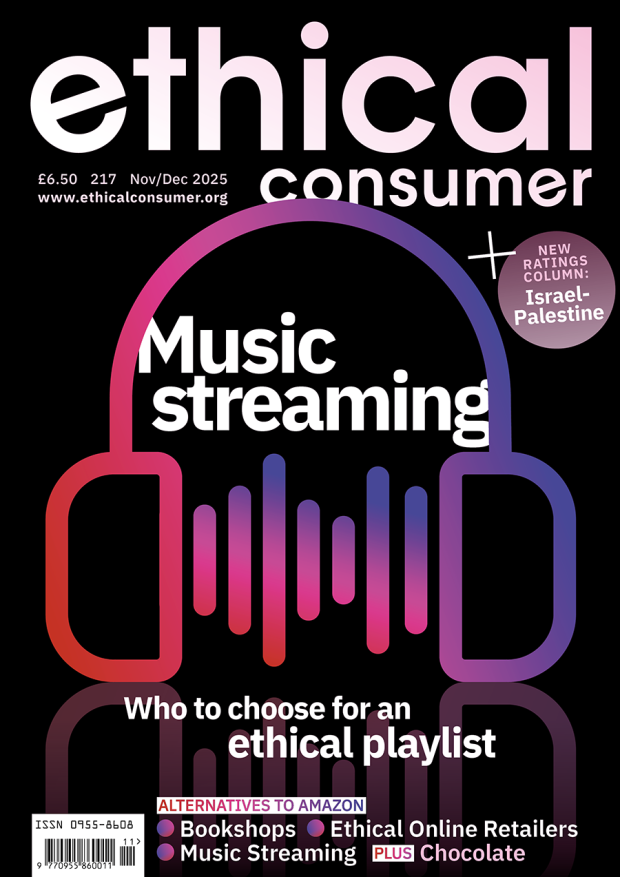Maybe it’s the political landscape, but readers are showing an unprecedented appetite for escapism – in 2024, booksellers reported record sales for fiction print books. According to figures from Nielsen Consumer, categories such as romance, historical fiction, and science fiction and fantasy never had it so good: sales rose 10% from the previous year. Elsewhere in the publishing industry, UK sales dropped 0.6% in 2024, although they remain above pre-Covid levels.
In less good news, Amazon retains its dominance of bookselling in the UK with more than 50% of all print sales.
Since 2012, Ethical Consumer has been calling for a boycott of Amazon as one of the biggest corporate tax avoiders in the UK.
According to our estimates, Amazon's corporation tax avoidance could have cost the UK around £575m in lost taxes in 2024 alone. As well as its own online book business, the company owns AbeBooks online bookshop and Audible audiobooks.
The good news is that there are lots of alternative places to buy your reading material, including your local independent bookseller, other online retailers, and charity shops. You could even pop into your local library. In this guide, we also give you some pointers to finding your local radical bookshop.
We’ve included ebook and audiobook retailers in the guide to ethical booksellers, as alternatives to Amazon.
Which bookshops are in the ethical bookshop guide?
This guide reflects an evolving book buying market, featuring physical books, ebooks, and audiobooks.
- Online-only retailers: AbeBooks, Alibris, Apple iBooks, Audible, Audiobooks.com, AwesomeBooks, Better World Books, Books Etc, Bookshop.org, Biblio, eBay, Google Books, Guardian Bookshop, Hive, Rakuten Kobo, Wordery, and World of Books.
- In person retailers (and some of them are online) bookshops: Blackwells, Daunt Books, Foyles, Hatchards, Oxfam bookshops, TG Jones (previously WHSmith), Waterstones.
To help make sense of it all we have annotated the brand names on the score table with P for print books, A for audiobooks, E for ebooks and * for secondhand.





